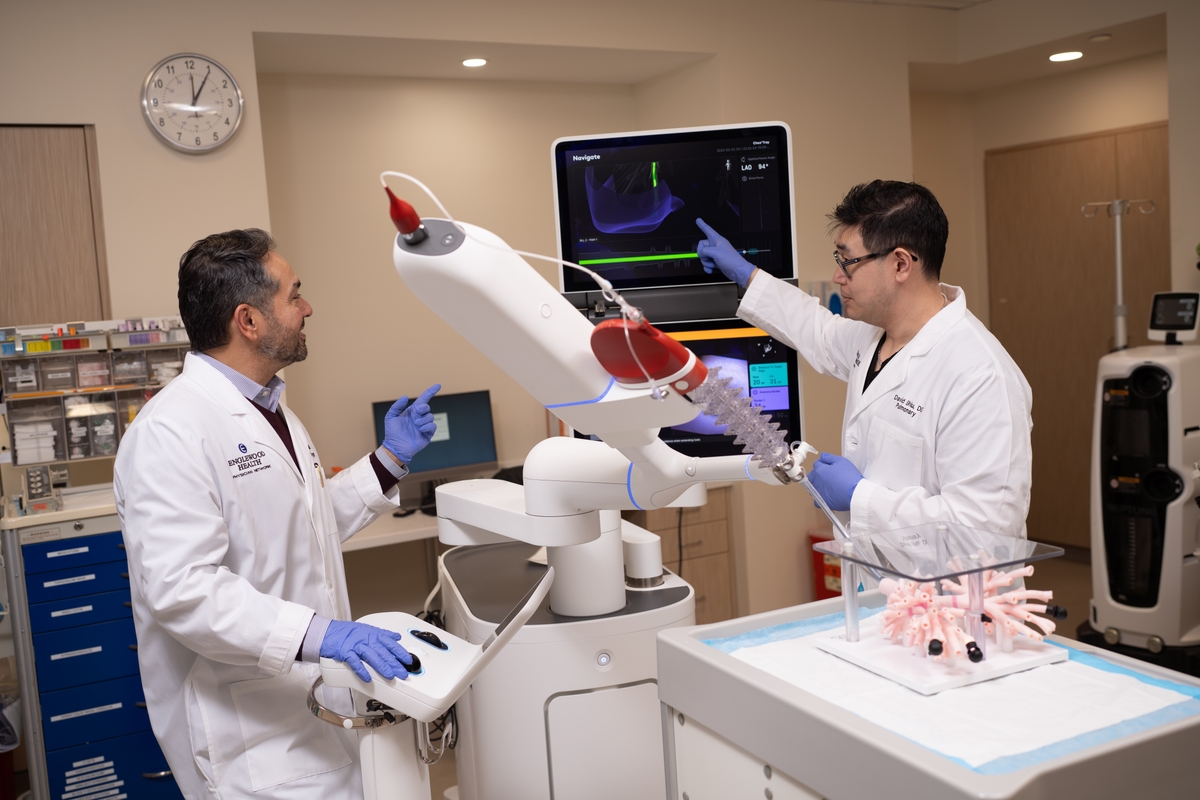Lung Cancer Screening
Lung cancer is the leading cause of cancer death in the United States, but detecting it early significantly improves the likelihood of successful treatment. At Englewood Health, we use low-dose CT scanning to identify suspicious masses quickly and accurately. This imaging technique provides more precise results than standard chest X-rays and is quick and painless. If screening detects a mass that requires further assessment, we can seamlessly refer you to other members of our team for additional follow-up.
Who should get screened for lung cancer?
You may be eligible for a low-dose CT scan for lung cancer screening if you are between 50 and 80 years of age, have no signs or symptoms of lung cancer, are a current smoker or quit within the last 15 years, and have at least a 20 pack-year history of smoking. As an example, a person could have a 20 pack-year history by smoking one pack a day for 20 years or two packs a day for 10 years.
Appointments for Lung Cancer Screening
If you meet the eligibility requirements, talk to your primary care doctor about being screened for lung cancer. Englewood Health offers low-dose CT lung cancer screening, which is covered by most insurance plans, for eligible patients who are at the highest risk of developing lung cancer. You will need a prescription for the CT scan.
If you already have a prescription, call our scheduling team at 201-894-3640.

Diagnosing and Staging Lung Cancer
If lung cancer is suspected, your doctor may recommend several diagnostic tests, including a chest X-ray, CT scan, MRI, or PET scan. These tests may also be used to see how much your cancer has grown or spread—a process called staging, which helps guide your treatment. Further testing may include:
- Blood samples: Done to detect tumor markers or tumor DNA released into the bloodstream.
- Sputum cytology: Used to analyze mucus coughed up from the lungs to see if it contains cancer cells.
- Tissue biopsy: Collection of a sample of lung tissue for microscopic examination to check for the presence of cancer cells.
- EBUS (endobronchial ultrasound): Performed to sample lymph nodes around your affected lung for further analysis, via a scope inserted into your bronchus that is guided by ultrasound.
- Molecular testing: We test your tumor for its genetic features so we can match you with targeted therapies or clinical trials of novel medications.
- Robot-assisted bronchoscopy: This advanced technology enables our doctors to perform minimally invasive biopsies in distant areas of the lungs that were previously unreachable using traditional methods.
- Navigational bronchoscopy: Our doctors use GPS technology to direct the video-bronchoscope to small tumors in the outer reaches of the lungs for biopsy.
- Thoracentesis: The collection of fluid from around the lungs using a long, thin needle for examination.